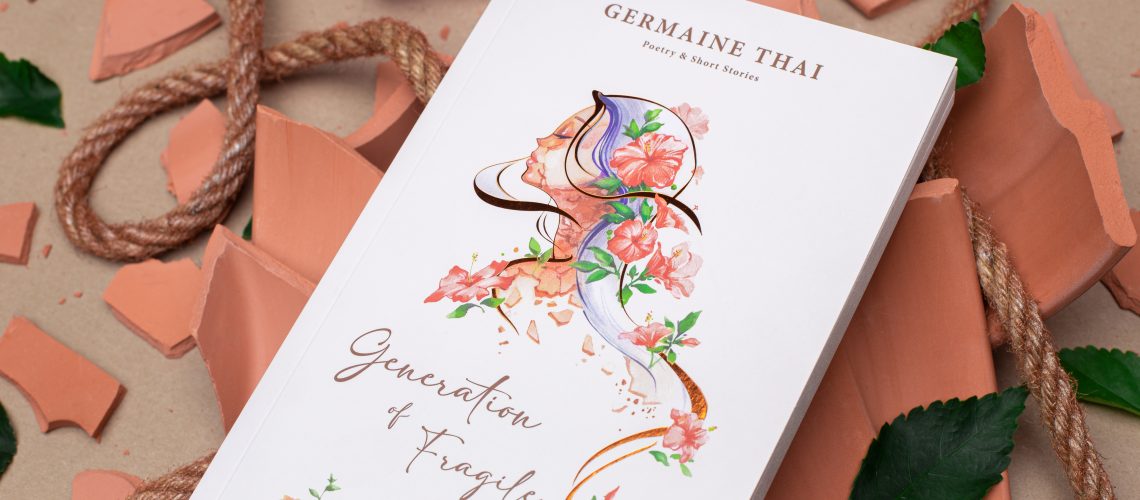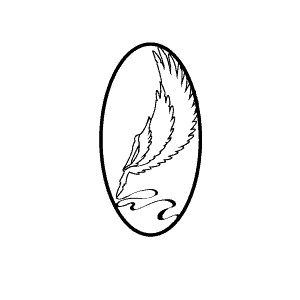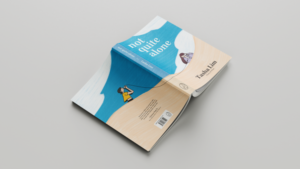Introducing you to our 4th Penwings author, Germaine Thai! Germaine has always had a nose stuck in a book, and like many readers, she tried her hand at writing, discovering that it allows a sense of escapism from reality. Believing that inspiration is everywhere, especially in the most mundane of things, Germaine’s writing zooms into the everyday; easily-overlooked moments which potentially carry the greatest of meanings. Let’s dive into Germaine’s journey of writing and publishing her debut poetry and short stories book!
Note: This interview has been edited for length and clarity.
1. When did you start writing, and why? Did you receive any formal training?
I received no formal training, though I did literature in form 5 for SPM. I guess that’s where it all started. I’ve always wanted to be a writer, but my father advised me to pick a degree with better job certainty, so I took up a degree in mathematics instead. However, writing was always at the back of my head. When I returned from university, I was inspired by some of my friends’ stories and the books and movies I was exposed to. I people-watched and started composing pieces on my phone during my commute to work as well. It was a long journey on the train to and fro KLCC, my then-workplace, and writing was how I passed time since there wasn’t much to do. Soon, the pieces piled up into a small collection, which was what I submitted to Charissa (Penwings) back in 2017. It was a “just do it” kind of moment for me since I was unsure if my writing was good. As luck would have it, Charissa replied to my email with rather positive reviews and advised me to keep working on it. From there, it snowballed, and here we are today!
2. What does writing mean to you and how does it make you feel?
Writing was and is a creative outlet for me. I deal with numbers at my day job, and it’s rational and logical with no room for creativity. When I log off work, it’s nice to be able to sit down and put words together that have a meaning—inspiration sometimes just strikes in the form of a single word or sentence, or an image. A few of my friends who read my early pieces told me that it was helpful for them in terms of moving on, acceptance, or just validation. It’s amazing to know that my words have some power to help, to heal; and writing is about sharing that with other people. Everyone has their own demons to battle, and I find it incredible that my words play a part in helping people overcome tough times. I didn’t wake up one day and decide to be an author—it’s a natural unfolding of events that led me down this path.
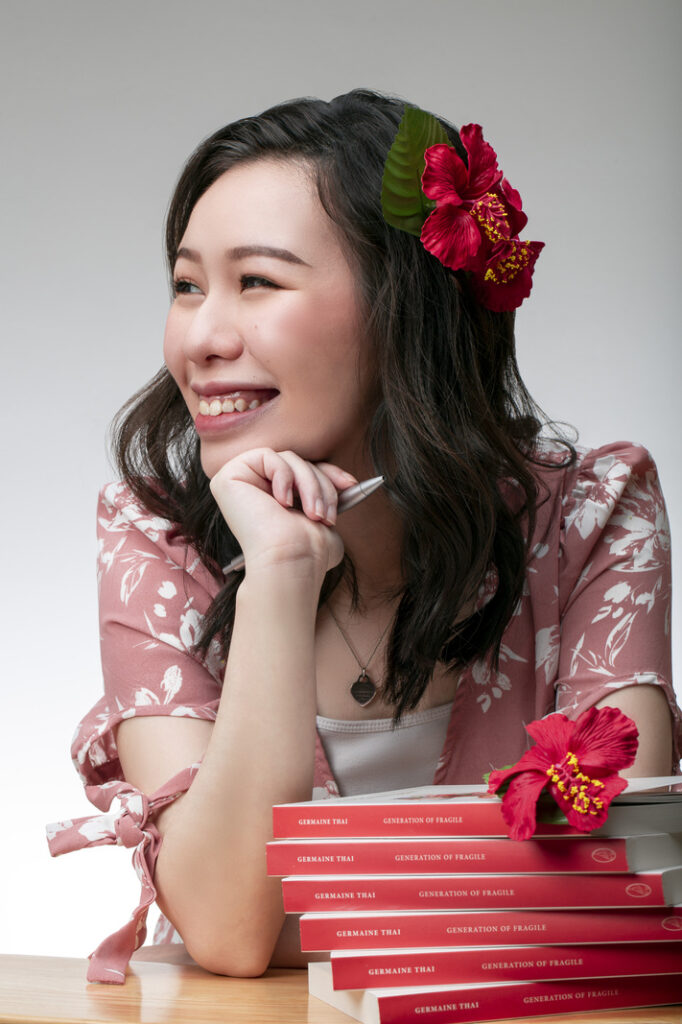
3. You mentioned earlier that your inspiration comes from everyday stories and things that you get exposed to, but what about your writing process? Do you set aside a certain amount of time each day or each week? How do you go about it?
My writing process isn’t organized at all. I know setting aside time to write each day is the advice everyone gives, but I’m not that disciplined, so my writing occurs in sporadic bursts. Sometimes, there are just phases in life where there’s a lot going on as well, which leaves me no time to write. Like with Generation of Fragile, I wrote the pieces in three chunks: in my early 20s, after university, and during the pandemic.
4. How many years would you say that Generation of Fragile has been in the making?
I turned 30 this year, so I would say it took me a decade! It’s a compilation of poems and stories over the years that were inspired by the life lessons, transitions, and realizations that you get from the early to late 20s. I feel like at this age, I know that I can be whoever and whatever I want to be, and not care about what other people think.
5. Did you choose the title Generation of Fragile yourself?
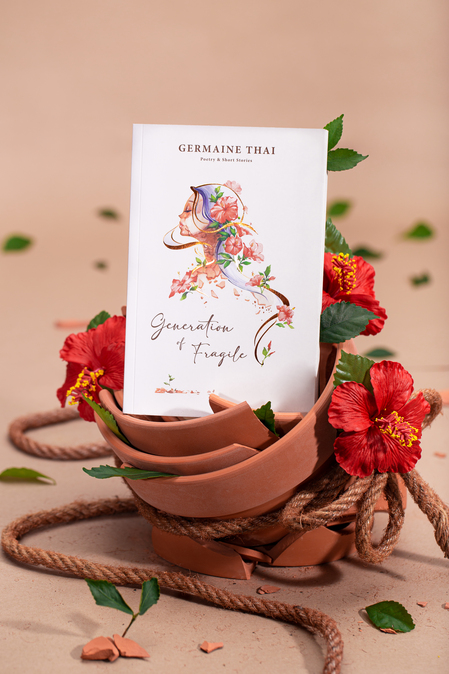
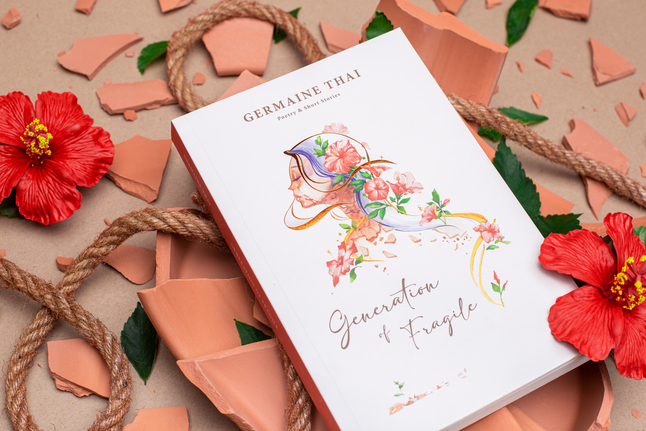
Yes, I did. Somehow, I’m the “rock” in a lot of my friend groups, so I get a lot of stories and input which helped shape the direction of the book. One personal experience stands out to me as well: I failed a paper once in university, which was shocking because I had never failed before. Adding on my upbringing with Chinese-style parenting where “failure is not an option”, it took me quite a while to recover from it. In hindsight, it wasn’t the end of the world, but I took it so badly. I feel like as a generation, we tend to break more easily, and for small matters too. I think it’s because we’re quite sheltered and protected, and we have not been through “hardships” the way our parents’ generation did. While our parents were struggling to put food on the table, working three jobs while studying, we’re breaking over failed papers, relationships that didn’t work out, or self-esteem issues. I also feel like a lot of decisions were pre-made for us as well, and those decisions come with safety rails. Unless we choose to strike out on our own, we would be “safe”, and maybe that’s why we’re more fragile too. Generation of Fragile speaks most to the millennials, because I, too, have been “broken”, and I know what that feels like.
6. What do you hope for readers to get from your book? You mentioned earlier that you hope that your book would be able to help them, be relatable, and help support them through tough times?
Exactly, and I think it’s important to remember that “bad” things will happen because that is how life is. Life has its ups and downs—that’s a fact. As an optimistic person, I believe that things will eventually work out, and if it’s not okay, it just isn’t the end yet. I also think that it’s important to have some sort of outlet for belief and hope in something, because on some days that will be the only thing that keeps you going.
As an optimistic person, I believe that things will eventually work out, and if it’s not okay, it just isn’t the end yet.
7. So you worked through your book spanning an entire decade, and it’s a compilation of your 20s. Even when you were not writing constantly, did you ever feel like you wanted to give up writing at some point?
Yes, there was a point where I just felt like stopping, which was around halfway through completing the book. I had signed with Charissa back in 2017, and I experienced a dry spell in 2019—the year the book was originally slated to publish. At the time, I still had 50–80 pages to complete the book. I started to doubt myself, asking if I should really continue. It was also an investment issue as I didn’t know how well the book would do. This book was a passion project, so it left me wondering if I wanted to spend so much time and money on it. Ultimately, I decided to take a leap of faith because I knew I would regret it if I gave up on this dream.
8. Do you enjoy balancing a full-time job and writing? How does that work out for you?
Definitely. Writing is different from what I do at my job, so it’s nice and refreshing to step away and immerse myself in it. It’s a good escape as well, since it can be hard to switch off from work sometimes.
9. If writing becomes sustainable for you, do you think you would ever want to do it full-time?
I don’t think so. It took me quite a long time to finish this book, and I’m not sure if that inspiration would continue to come to me if I were to do it full-time. I feel that having other things in life like a day job, social life, and writing at my own pace helps. This way, I get to collect stories and everything that I experience would help shape the way I think, which could be different at different points in my life.
10. When did you realize that you wanted to publish a book? Was it because you got positive feedback [from Charissa]?
I asked myself, “What do I have to lose?” I submitted my manuscript, got a response, and the rest is history.
I know that I don’t have the patience to finish a novel—it’s just not my style. My writing style has always been short. I never thought that my type of poetry consisting of only one stanza or one sentence would be a thing. It has never been the norm because poetry used to be like Shakespeare’s: traditional with strict rules and formatting. Then Lang Leav came along, tore down traditions, and built her own niche in the world of poetry. That was when I started searching for local authors, leading me to an article on Charissa and discovering that we have similar writing styles. I had reached out to bigger publishers, but they either lacked a personal touch or outright ignored me. It was difficult to find a publisher that I thought was the right fit for me, especially as a newbie who knows nothing about publishing. So, when I read Charissa’s story, I knew that she would understand because she had gone through the same journey. That struck a chord, and I asked myself, “What do I have to lose?” I submitted my manuscript, got a response, and the rest is history. That was the pivotal moment which made me feel like I could finally publish a book.
11. Bringing the conversation over to your impending motherhood: how do you feel about having these two milestones (the book and the baby) close together?
To be honest, it is a little scary, but it helps knowing that the book is done. I sent in my final manuscript in January 2022, and it was just a waiting game for my slot to be published alongside rounds of edits and proofreading. There’s still a lot of uncertainty regarding both matters though, because I don’t know how well the book will do and I don’t know what to expect in becoming a mother as well. Everything, the book and the baby, is uncharted territory. It’s terrifying but also exciting. Starting my 30s is a new chapter and it’s time to embrace whatever comes my way.
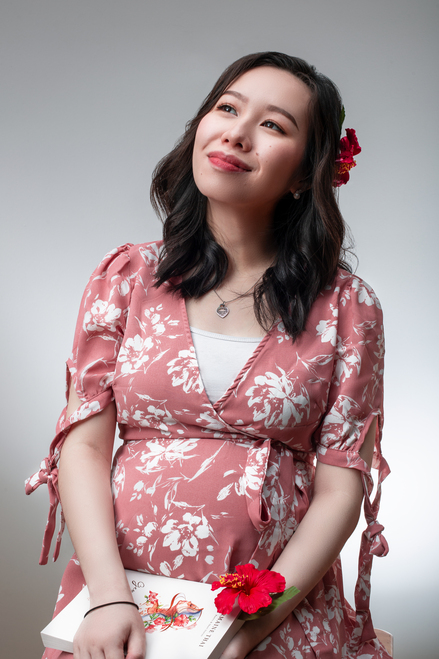
12. In terms of writing/publishing in the future, would you like to write/publish another book? Will you be looking at how well this book does before making a decision?
I don’t think I will stop writing, but whether or not I will publish a second book is dependent on the performance of this book. It will also highly depend on my time, especially after the baby comes.
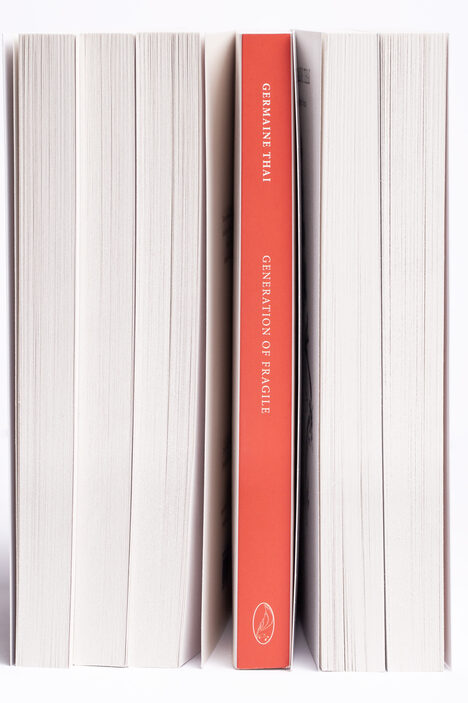
13. Would you only stick to poetry/short stories? You mentioned that you’d be too impatient to finish a full-length novel, but what about exploring other types of writing? Or do you think you’re quite comfortable and secure with your own style now that you’ve found it?
As of now, if I were to write a second book, it would be in the same style. I might change my mind though: maybe some new genre might pop up, or perhaps a children’s book! It depends on where life takes me and I’m content to follow it.
14. Do you have any advice for budding writers?
Just continue working on it. Not everything that you work on will be good, but keep practicing as it will help you become better, just like with everything else. If it’s possible, get both personal and professional feedback on your writing.
We enjoyed our conversation with Germaine, and we hope you have too! Writers put a little piece of their soul in their work, and sharing it with the world can be scary yet exhilarating. If you’d like to check out Germaine’s debut and lend her some support, you can do so at the link below:
Also don’t forget to check her out on Instagram at @germainethai_quotes, or follow us @penwingspublishing!

